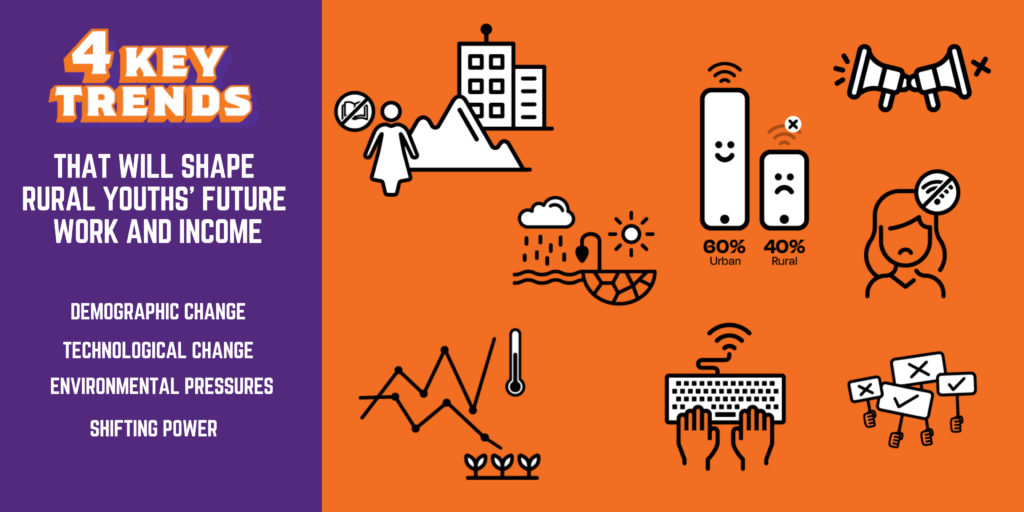International Youth Day 2020
To get ready for the changing world of work, the voice of youth needs to be heard now to make concrete proposals, action plans and policies. As a starting point, during International Youth Day 2020, young people and decision makers will enter into dialogue in webinars, on TV, radio and on social media to map out the issues they see around the future of work.
All around the globe, the rapid changes in our technological, climate and political realities have reshaped the world of work, while the Covid-19 pandemic accelerates the change process. Rural youth are facing unprecedented challenges. Yet we have the power to transform these challenges into opportunities.
Commissioned by Oxfam’s Empower Youth for Work program, the Institute of Development Studies (IDS) conducted a research on ‘The Future of Work’ to explore the expected changes in work and income-generating activities for rural young people in Bangladesh, Ethiopia, Indonesia and Pakistan. The research also looked into whether existing policies have anticipated the changes in the future of work.
The future of work and income opportunities for rural young people will be shaped by the trends of technological change, demographic change, environmental pressures and shifting power. For example, access to internet is determining whether or not someone could proceed with their education, have access to information and to certain jobs. Without connectivity, inequality is increasing.
In the meantime, the COVID-19 crisis has turned from a global health crisis into a severe economic crisis, resulting in acceleration of the effects on various aspects of the trends, imposing great threats to the livelihood of rural youth and women.
However, facing with these challenges, the policies in the EYW countries only anticipate the future of work in a limited way, with worrying little attention to technological and environmental change. Leaving youth in a vulnerable position: Youth are three times more likely to be unemployed than adults (IFAD 2019). Irregular work and a lack of formal employment and social protection leads to working poverty (i.e. where people live below the poverty line despite being in work).
If these changes and trends are not properly addressed, it will increase the inequalities and poverty rural young women and men already face today. We need to get ready for the future of work and take actions now! To make the right interventions in this changing world of work, the voice of youth needs to be heard now to make concrete proposals, action plans and policies.
The full report The Future of Work

